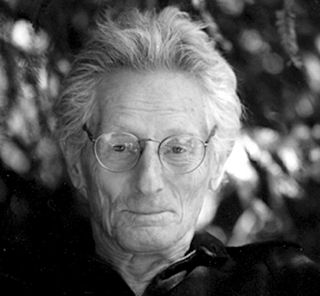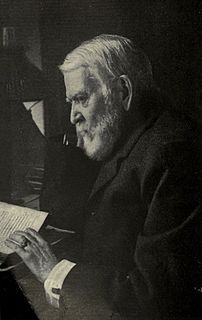A Quote by Stanislaw Lem
Each civilization may choose one of two roads to travel, that is, either fret itself to death, or pet itself to death. And in the course of doing one or the other, it eats its way into the Universe, turning cinders and flinders of stars into toilet seats, pegs, gears, cigarette holders and pillowcases, and it does this because, unable to fathom the Universe, it seeks to change that Fathomlessness into Something Fathomable.
Related Quotes
There is no single best kind of death. A good death is one that is "appropriate" for that person. It is a death in which the hand of the way of dying slips easily into the glove of the act itself. It is in character, ego-syntonic. It, the death, fits the person. It is a death that one might choose if it were realistically possible for one to choose one's own death.
When one existentially awakens from within, the relation of birth-and-death is not seen as a sequential change from the former to the latter. Rather, living as it is, is no more than dying, and at the same time there is no living separate from dying. This means that life itself is death and death itself is life. That is, we do not shift sequentially from birth to death, but undergo living-dying in each and every moment.
For all that we have done, as a civilization, as individuals, the universe is not stable, and nor is any single thing within it. Stars consume themselves, the universe itself rushes apart, and we ourselves are composed of matter in constant flux. Colonies of cells in temporary alliance, replicating and decaying and housed within, an incandescent cloud of electrical impulse and precariously stacked carbon code memory. This is reality, this is self knowledge, and the perception of it will, of course, make you dizzy.
To my mind, there are two things that, in life, you can do about death. Either you can choose to ignore it, in which case you may have some success in making the idea of it go away for a limited period of time, or you can confront the prospect of your own death and try to analyze it and, in so doing, try to minimize some of the inevitable suffering that it causes. Neither way can you actually overcome it.
And the greatest calamity that has happened to the human mind is that he is against death. Being against death means you will miss the greatest mystery. And being against death also means that you will miss life itself - because they are deeply involved into each other; they are not two. Life is growing, death is the flowering of it. The journey and the goal are not separate; the journey ends in the goal.
Life rises out of death, death rises out of life; in being opposite they yearn to each other, they give birth to each other and are forever reborn. And with them, all is reborn, the flower of the apple tree, the light of the stars. In life is death. In death is rebirth. What then is life without death? Life unchanging, everlasting, eternal?-What is it but death-death without rebirth?
All death in nature is birth, and at the moment of death appears visibly the rising of life. There is no dying principle in nature, for nature throughout is unmixed life, which, concealed behind the old, begins again and develops itself. Death as well as birth is simply in itself, in order to present itself ever more brightly and more like to itself.
It's just a weird idea to me because each book is a complete universe unto itself, so why would I want this other universe from this other galaxy that has nothing to do with mine? That's how I really feel about it. Let's be honest - I'm still the writer, so certain things will be common denominators. But that I just want to keep natural and not studied.






































